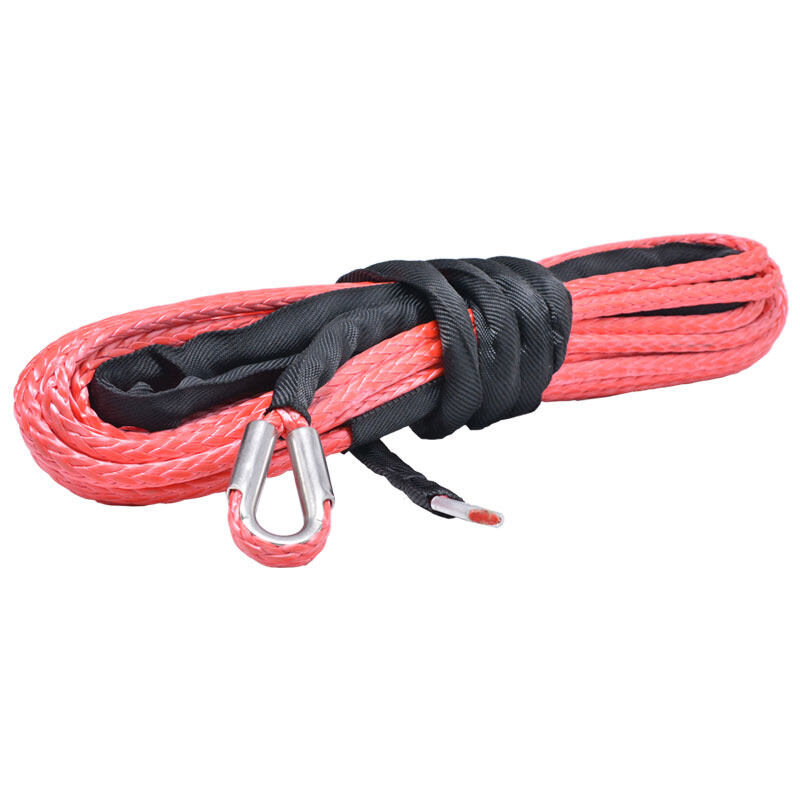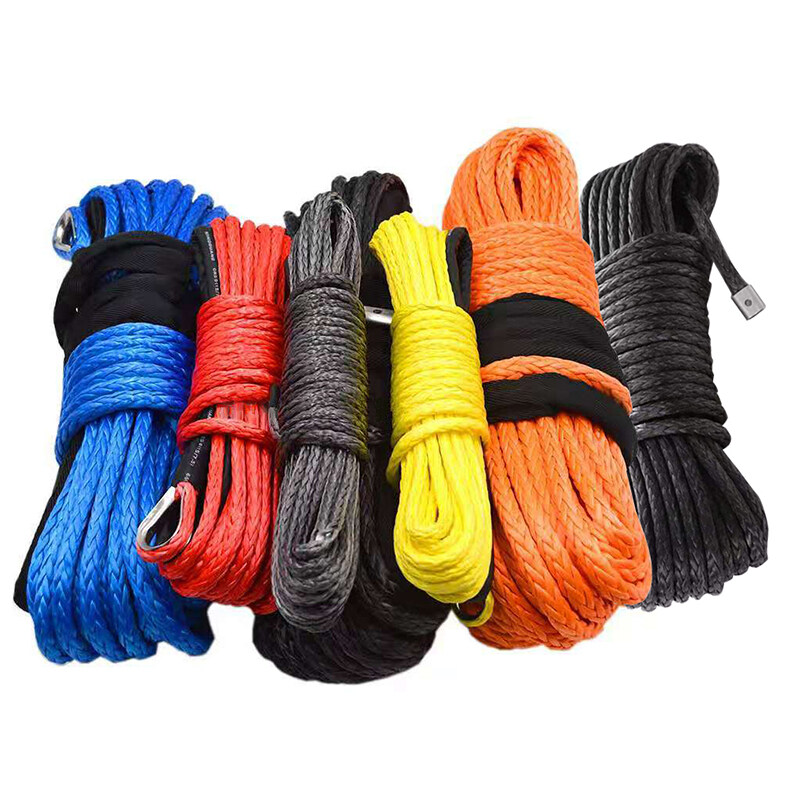Email format error
Email cannot be empty
Email already exists
6-20 characters(letters plus numbers only)
The password is inconsistent
Email format error
Email cannot be empty
Email does not exist
6-20 characters(letters plus numbers only)
The password is inconsistent


Synthetic ropes have gained popularity in the off-road community as a safer and lighter alternative to traditional steel cables. However, choosing the right type of synthetic rope for specific off-road activities is crucial for optimal performance and safety. In this article, we will discuss the different types of synthetic ropes and their advantages and disadvantages for various off-road activities.
PP is the most common type of synthetic rope and the cheapest among all options. It is lightweight, floats on water, and is resistant to mildew and rot. It has a low breaking strength and is not recommended for heavy-duty off-road activities.
Nylon rope is stronger and more durable than PP rope and is ideal for off-road activities that require higher strength, such as rock crawling and winching. It has high stretchability, making it easy on the winch and less likely to snap under sudden loads. Nylon is not water-resistant, so it can absorb water, making it heavier and harder to handle.
PES rope is highly resistant to UV rays, chemicals, and abrasion. It has a low stretchability compared to nylon, making it more suitable for winching tasks that require precise control. It is not water-resistant and can stiffen and lose strength when exposed to water.
Dyneema and Spectra ropes are the strongest synthetic ropes available, with a breaking strength up to eight times that of steel cables. They are lightweight, highly resistant to abrasion, and have low stretchability, making them ideal for winching and recovery operations. They are expensive and can be difficult to handle when under high tension.
Rock crawling requires a rope with high strength and good flexibility. Nylon ropes are the most popular option for rock crawling due to their ability to stretch, providing a cushion effect. PES ropes can also be used as they have a lower stretchability but are highly resistant to abrasion.
Mudding requires a rope with high strength and durability, as well as resistance to abrasion and water. Dyneema/Spectra ropes are the best option for mudding as they have excellent strength and abrasion resistance. Nylon ropes can also be used but require proper maintenance to prevent water absorption.
Overlanding requires a rope that can withstand long hours of continuous use and can handle a range of situations. Polyester ropes are the best option for overlanding as they are highly resistant to UV rays and abrasion, making them suitable for long-term use. Nylon ropes can also be used depending on the specific overlanding activity.
Recovery operations require a rope with high strength, low stretchability, and resistance to abrasion and chemicals. Dyneema/Spectra ropes are the most suitable option for recovery operations due to their high strength and low stretchability. Nylon ropes can also be used, but care must be taken to maintain their strength when exposed to water.

Choosing the right type of synthetic rope for specific off-road activities is essential for achieving optimal performance and safety. It's important to consider the strength, stretchability, abrasion resistance, water resistance, and UV resistance of the different types of synthetic ropes and match them to the activity at hand. With proper selection and maintenance, synthetic ropes can provide a safer and more efficient off-road experience compared to traditional steel cables.